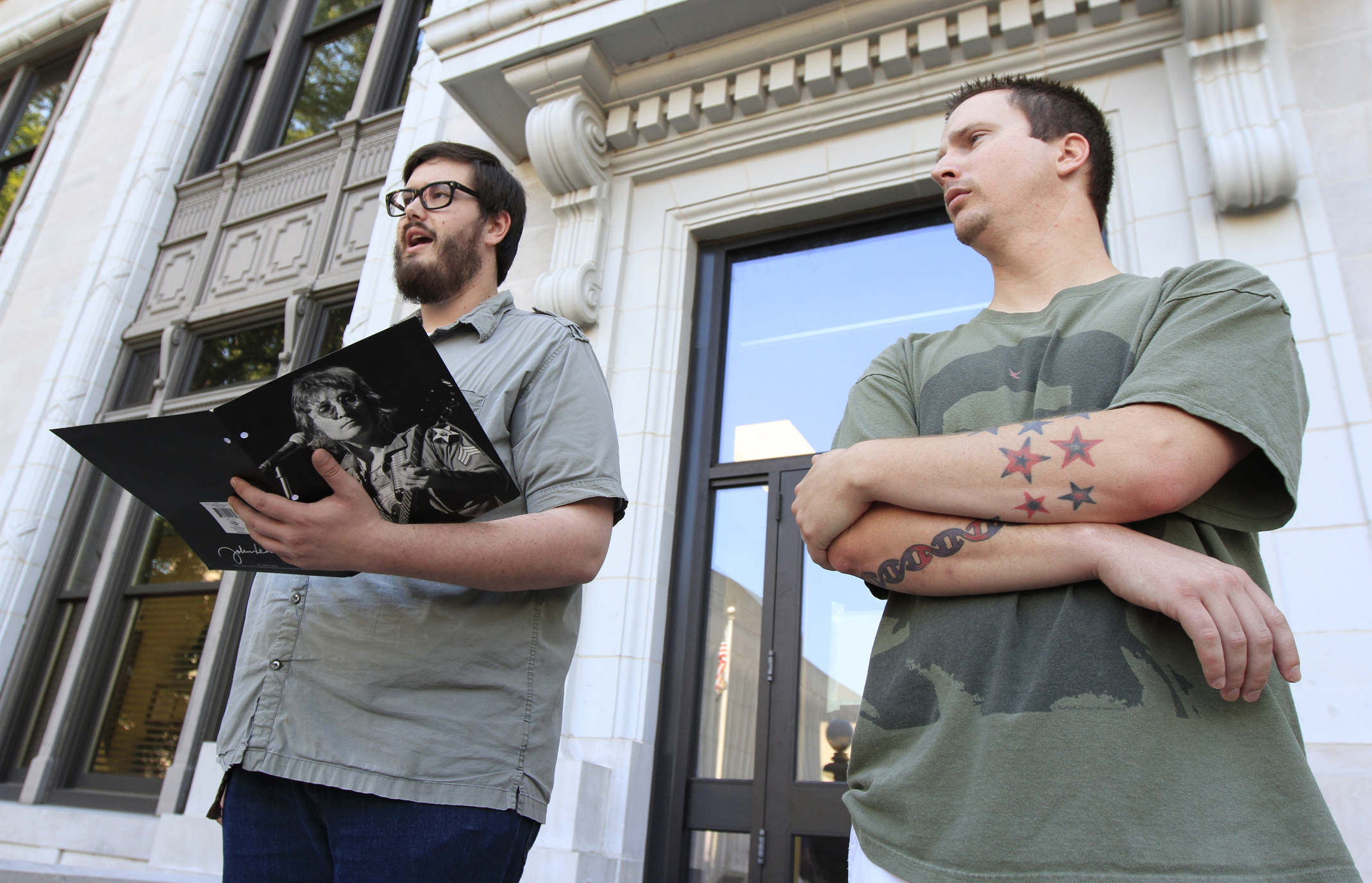 Plaintiffs Brandon Jones, left, and Tommy Coleman, right, lead a rally on the second level of the Hamilton County Courthouse. The group attended the Hamilton County Commission meeting to address commissioners on their belief that a moment of silence should open government meetings instead of prayer.
Plaintiffs Brandon Jones, left, and Tommy Coleman, right, lead a rally on the second level of the Hamilton County Courthouse. The group attended the Hamilton County Commission meeting to address commissioners on their belief that a moment of silence should open government meetings instead of prayer.The Hamilton County Commission and two plaintiffs suing to stop the panel's weekly prayers now await a judge's decision on whether the prayers will be stopped temporarily.
The county's outside counsel, Stephen Duggins, filed a court brief Wednesday, arguing that, at this time, the court shouldn't consider any of the commission's actions before implementation of its new prayer policy.
On July 3, after plaintiffs Tommy Coleman and Brandon Jones filed a lawsuit to stop the prayers, commissioners approved a new policy that invites ministers from across the county to give the prayer. The policy, commissioners said, is aiming to include all congregations and religious assemblies.
"The sole question before the Court, then, is whether an invocation policy that permits invocation speakers to reference or acknowledge a divine being is constitutional," Duggins wrote in his brief.
Jones and Coleman filed a brief earlier in the week, arguing that U.S. District Judge Harry S. "Sandy" Mattice should consider the county's prayer practices both before and after the policy's implementation.
In a July 26 hearing, Mattice told both sides they had until Wednesday to file any additional briefs to support their case before he decides whether to grant a temporary injunction to halt the prayers while he makes a final ruling on the case.
In June, Coleman and Jones filed a suit in federal court arguing that Christian prayers held during County Commission meetings violate the First Amendment's establishment clause.
After commissioners continued inviting pastors to hold Christian prayers, the plaintiffs filed a motion for a preliminary injunction.
In his brief, Duggins argued that Coleman and Jones have not met their burden of proving that "no set of circumstances exists under which the policy would be valid." The court can't determine from the record what types of invocations will be given, Duggins wrote.
Hamilton County's new policy is "substantially similar" to a Forsyth County, N.C., one the 4th Circuit Court of Appeals upheld, though the court found that the application of that county's policy violated the establishment clause.
Duggins also argued that the U.S. Supreme Court's landmark 1983 legislative prayer decision Marsh v. Chambers "approved legislative prayers that are explicitly Christian" and that the 6th Circuit Court of Appeals, which includes federal courts in Tennessee, has not held "distinctively Christian prayers unconstitutional."
"Marsh very clearly does allow denominational prayers," Duggins said Thursday.
Finally, the county argues that what Coleman and Jones want might be beyond the court's jurisdiction because it requires the court to determine whether prayers resulting from the new policy are "sectarian" or not.
It's impossible to draw a line between what is "supposedly 'sectarian' and what is not," Duggins said. "The argument that prayers must be explicitly nondenominational or blandly generic is contrary to other Supreme Court precedent warning against establishment of a civil religion."
Mattice now is considering the sides' competing arguments about the motion. He said last month that he would rule as quickly as possible once he had the briefs.
"The community deserves an answer on this," he said during the preliminary hearing.